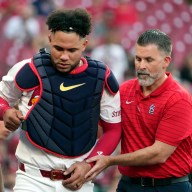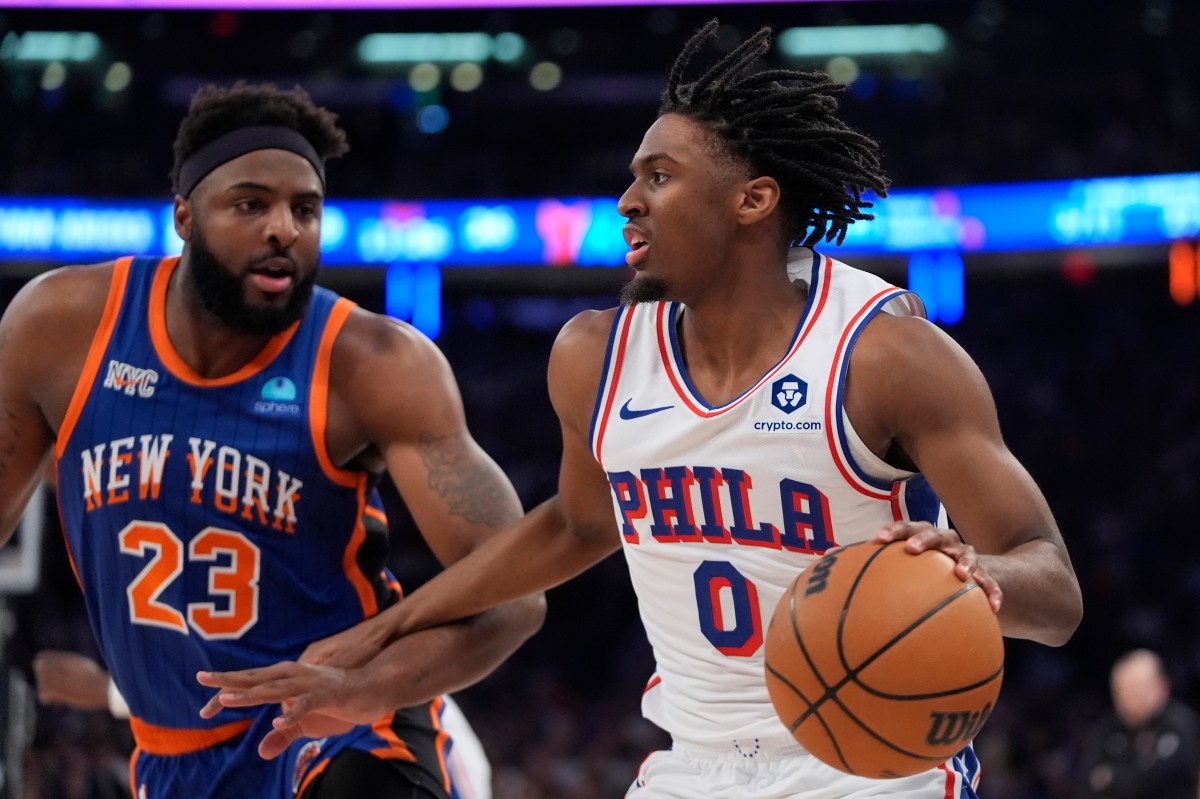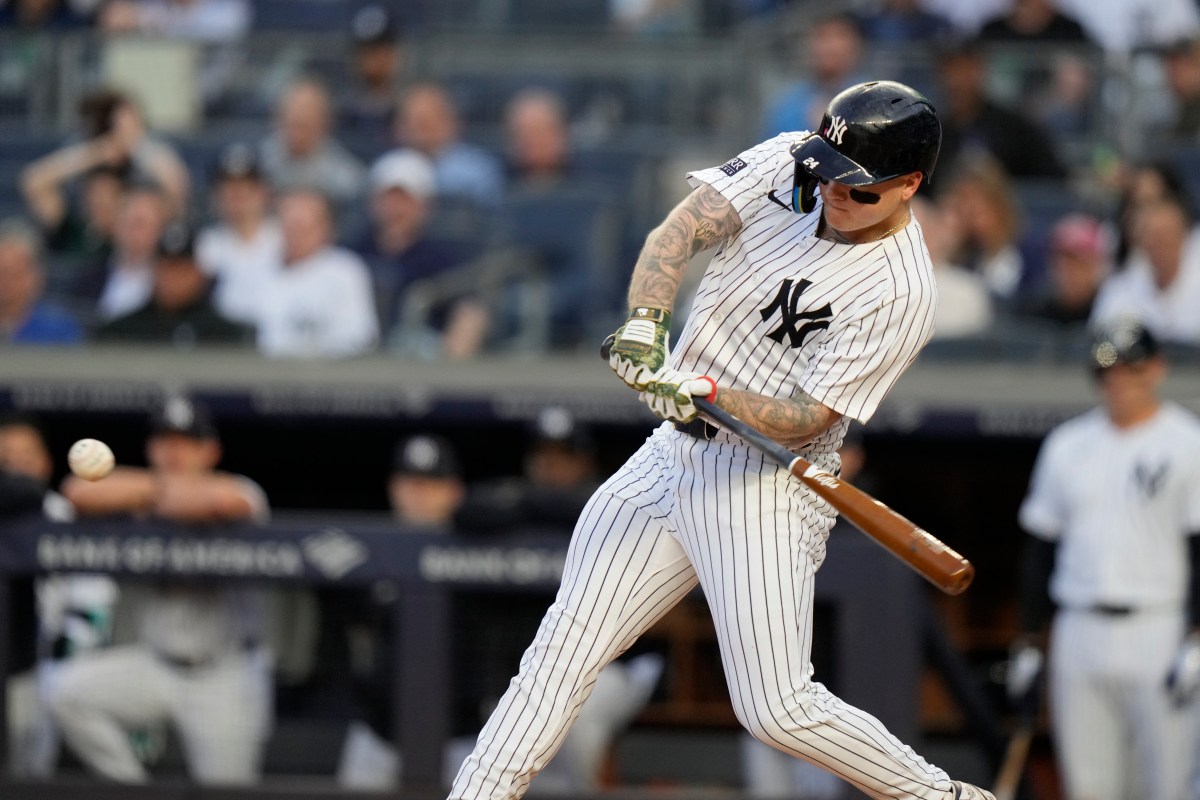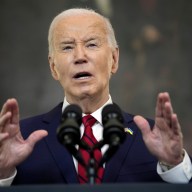 Emma Thompson plays the creator of “Mary Poppins” in “Saving Mr. Banks.”
Emma Thompson plays the creator of “Mary Poppins” in “Saving Mr. Banks.”
Credit: Getty Images
Just before our chat with “Saving Mr. Banks” star Emma Thompson, the British actress had wowed a press conference audience with a rather athletic entrance, vaulting herself over the dais to, legs lifting high over the table, to get to her seat. The display was a far cry from P.L. Travers, her terse on-screen alter ego in “Banks.” But then there’s a lot Thompson and Travers don’t have in common.
That was a fantastic entrance to the press conference.
Essentially what you have to understand is that spiritually I always carry a bladder on a stick and wear a cap and bells. I must, I think, in a past life been some sort of court jester. Because I seem to make it my aim in life to get a laugh. Any way you can.
It’s a bit distracting in this film that you’re far too young for the part.
Well, I’m not far too young. I’m 54 and she was 66 at the time. I also think I look very old — suitably and properly old. Travers herself liked to divide a woman’s life into three main parts: nymph, mother and crone. So I said, “Why don’t we just play her on that cusp between mother and crone?” There’s still a kind of Eros, an erotic possibility for her, but you can see that it’s never going to happen because she’s too closed up. I think that’s more interesting because you can see the possibility there, and you’re not playing a crotchety old lady — who is rather more easy, because of the way that our world works, to dismiss.
What are your thoughts on that simplified trio of life stages?
I kind of like it. I think it’s interesting, you know, with the seven ages of man being another format, if you like, for thinking about the stages of our lives. And I personally think everything is always happening at once, if you see what I mean. I think that we carry it with us all the time, so you don’t necessarily leave anything behind. It’s all coming with you.
You’ve mentioned a problem with trying to find heroic historical female characters to look to. How do we fix that?
There are many things you can do. There’s two questions: What is heroism? Is it action? Does it have to be action-based? As I started to [work] in cinema I realized that I would identify with Marlon Brando because he was the one getting to do things and that women seemed to be the ones saying, “No, don’t do that brave thing, stay here with me,” I started to get very frustrated with that. And I remain frustrated with that because it’s still a very common trope. I turned down role after role after role in my 30s which were the wife going, “No please! Why don’t you think of us? Think of the children!” That sort of milksop, marshmallow-y stuff that wasn’t even allowed to be inhabited in any real way.
But the problem with female heroism is not one that’s very easy to answer, because if the actions are going to be the same as the male hero, then what do you do? You stick a gun in their hands. What’s the point of that? It’s the same old, same old. It’s a real conundrum. And I’m working on it constantly, constantly. Things will emerge, but it’s interesting that it’s still a question. Because the answer certainly isn’t “Salt” [Angelina Jolie’s action film] — although I really enjoyed “Salt.” There’s got to be something else, right?
















